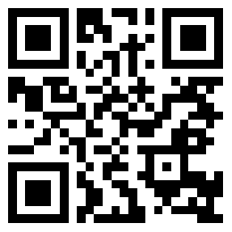大使疫情手记——幽灵船

作者:Geoff Raby
中文:罗曼
转自朱雀艺术
前澳大利亚驻华大使、艺术收藏家、经济学家、专栏作家 Dr Geoff Raby AO 原计划于二月底返回北京,后因疫情爆发滞留悉尼。朱雀艺术特别开设【号外】专栏,连载大使的疫情手记。今日连载至第2篇。
大使疫情手记
幽灵船
今天它们不见了。自疫情开始,它们每天都在那里。巨大的船锚横亘在海港中央,阻挡了克雷蒙角的视线。疾病与死亡之船,现代版玛丽·赛勒斯特号(Mary Celeste,注1)。

历史上的“幽灵船”玛丽·赛勒斯特号
每天早晨,我们都会在拉什克特斯湾疾走锻炼,在达令角尽头做拉伸,然后从通往帕兹角的陡峭台阶返回达令赫斯特。
那些停靠于此的邮轮太过庞大,几乎填满了这个巨大的天然海港。我们不知道它们为什么在那里,发生了什么——无非是又一个政府向公众“失声”的例子。
在横滨隔离的钻石公主号邮轮为世界敲响了警钟,说明了COVIN-19新冠病毒不仅仅是一种中国病毒。奇怪的是,日本采取了一种温和的手段,每天仅对数千名乘客和船员中的几百名进行测试。英国 《卫报》于3月6日报道称,这艘油轮已成为冠状病毒的“温床”。
而那只不过是三周前的事情。病毒传播之快,让人恍惚以为已经过了好几个月。 然而,这个世界吸取他人经验教训的速度总是一如既往地缓慢。在即时通讯时代,我很难理解为什么会这样。
十天前,红宝石公主号上的乘客获准在悉尼下船。数百名感染者或将病毒传播至社区。目前已有至少一例死亡病例。我们当然会犯错,但是疫情面前,这些错误根本不应该发生。武汉再一次为我们、为全世界敲响了警钟,然而我们选择充耳不闻。为什么?

令人高兴的是,目前看来澳大利亚已经明令禁止所有邮轮入港。仍有一艘邮轮停靠在西澳的弗里曼特尔,当地政府正在履行其人道主义义务,在照顾病患的同时预防新的社区感染。
一夜之间,中国宣布了针对外国人入境的最新严格限制。尽管中国国内新感染病例数稳步下降,表明了在应对疫情方面取得了可靠进展,但输入型病例数仍在攀升。今天早晨醒来时,我有点伤感地意识到,我们这些住在中国的老外在接下来的很长时间内都无法返回中国了。好吧,至少在病毒带来的所有未知里,这一点是确定无疑的。

今天上午的拉什克特斯湾公园充满了活力,就像疫情到来之前一样,甚至比之前更加热闹。到处都是年龄各异的人,还有各色品种的狗在快乐地互相嗅探嬉戏。每个人都想走出家门,大多数人都保持着社交距离——它已经不自觉地内化为人们的行为守则了。
阳光明媚,似乎没有人注意到那些幽灵船悄悄地消失了。
注1:玛丽·赛勒斯特号(Mary Celeste)是一艘双桅帆船。它曾经于1872年在大西洋被人发现全速朝向直布罗陀海峡航行,不过在船上并没有发现任何人。这些船员的下落衍生出许多猜测,包括酒精中毒与海底地震等推测。玛丽·赛勒斯特号经常被认为是鬼船的原型。
Geoff Raby’s Pandemic Journal
Ghost ships
Today they were gone. Every day, since the emergency began, they have been there. Gigantic hulks anchored middle harbour, blocking the view of Cremorne Point. Great galleons of disease and death. The modern version of the Mary Celeste.
Our exercise routine each morning is to power walk around Rushcutters Bay, do stretches at the tip of Darling Point then return to Darlinghurst via the steep steps leading up into Potts Point.
The cruise ships lie at anchor are so great that they almost fill the massive natural harbour. We don’t know why they are there and what is happening. Just another instance of the government failing to inform the public.
The Diamond Princess quarantined in Yokohama alerted the rest of the world that COVIN-19 wasn’t just a Chinese disease. Bizarrely, the Japanese took a casual approach, testing only a few hundred a day of the many thousands of passengers and crew. The Guardian reported on the 6 March that it had become a “breeding ground” for the coronavirus.
That was not much more than three weeks ago. Such is that speed that things have moved with this virus that it feels like months ago. And yet, like so often it would seem, lessons from one part of the world were only slowly absorbed in other parts. It is hard to fathom why this is so in an age of instant communications.
The passengers of the Ruby Princess were allowed to disembark in Sydney ten days ago. Hundreds were infected and allowed to disperse across the community. At least one has now died. Mistakes happen of course, but in the Time of Covin-19 something so fundamental should not occur. Again, we were warned, as the whole world was by Wuhan, and we chose not to heed the warnings. Why?
Happily, it would seem that all cruise ships are now banned from Australian ports. One is still in Fremantle and authorities are discharging their humanitarian obligations while tending to sick passengers and trying to prevent new infections in the wider community.
Overnight, China has announced new strict limits on foreigners entering the country. While domestic new infections have been steadily declining, indicating credible progress in getting on top the disease, new infections from people entering China are still rising. It is a doleful thought this morning to wake up knowing none of us foreigners who actually live in China will not be able to return for many, many months. At least that is a certainty among all the unknowns with the virus.
Rushcutters Bay park was full of life and activity this morning. It was just like any other day before the virus changed our lives, except that it was busier. It was full of more people of a wider age distribution, and more dogs of the strangest shapes and sizes all happily sniffing and wrestling each other. Everyone is wanting to be out of their houses and apartments. Most people were keeping their social distancing. This has already been internalised into the codes of civil behaviour. The weather was gorgeous. It is doubtful that anyone noticed that the ghost ships had slipped away.



 +61
+61 +86
+86 +886
+886 +852
+852 +853
+853 +64
+64


